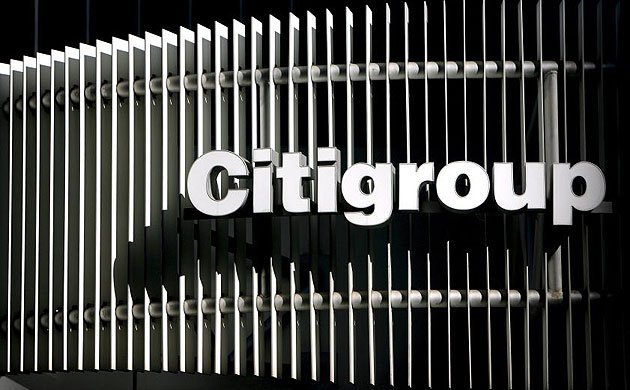Home Tags Posts tagged with "Mortgage"
Mortgage

There are times when you come up with a brilliant idea that will surely be revolutionary. Everything’s all set. The only problem is money. How do you raise the necessary funds so your idea can take off and become a reality? What if banks and lending agencies do not approve your loan? Where will you go so you can get the funds that you need? In this post, we will explore crowdfunding and how this can help you in making your vision come to life.
CrowdFunding
Social media is an important factor when it comes to crowdfunding. You may be wondering how this is possible at all. Aren’t social media network only for posting photos and getting in touch with friends? Not anymore. It has become more powerful than that. It has changed the way we do business, how we market, and how we raise capital.
Social media is not limited to Facebook, Instagram, and Pinterest. There are many social media platforms that are crowdfunding websites. But what are these crowdfunding websites? These websites are what connects hopeful entrepreneurs to generous investors. Not only that, you get to connect with contributors, patrons, and producers, too.
Crowdfunding has the same idea as that of crowdsourcing. With these two, a person gets to have an open call towards a crowd or a large group of people. With crowdsourcing, tasks can be outsourced to this crowd. With crowdfunding, funds can come from these group of people through an open call. Through this online community, projects, causes, and businesses can be funded.

How It Works
The rules are different from one site to the next. In general, people, charities, or businesses get to pitch their ideas and set a goal for their fundraising, as well as deadline. After that, the potential patrons review the ideas and pitches so they can decide and choose which among the pitches they would want to support.
In crowdfunding sites, people do not invest in the business or project, what they do is that they fund it. If the business becomes prosperous, they get to be rewarded. However, it remains as a business that the entrepreneur owns. Patrons do not get to own any part of the project or business. This is because of the US regulations that are for now being reviewed by the SEC. But this may have some changes in the future.
For each of these crowdfunding sites, there are different rules, most especially the sites that are located outside of the US. That is why it is important that you take the time to read the terms and conditions.
How to Start Your Campaign
Your crowdfunding campaign begins with a pitch. With your pitch, you get to describe what your project is about. For example, if your project’s aim is to help veterans with their VA mortgage rates for their homes, you have to be very specific and very detailed about how you are going to help them and who among the veterans you will help. Also, with your pitch, you can describe in detail the rewards that the patrons may receive if the fundraising turns out to be successful. You can then create a timeline and a funding goal.
Choosing Your CrowdFunding Site
It makes a difference which site you choose to launch your campaign. For each crowdfunding site, they have a specific audience. There are those for creative people, there are some for the entrepreneurial crowd, and there are those that are socially bent. Non-profit organizations can also take advantage of crowdfunding sites. You have to know and understand the focus of your project so that you will also know on which site you are going to launch your crowdfunding campaign.

Knowing Your Target Audience
Once you are already clear about your project and you have chosen your site, focus now on the audience. Most of the projects that have been successful focused on a narrow and specific audience. You can focus on the audience based on religious nature, geographic area, or common background. You can also consider common interests such as books, movies, and music. When you know how to target your audience, your chances of being successful in your crowdfunding campaign will be much higher.
Planning Ahead
The internet is a fast-paced world. Your campaign can get left behind if you do not actively attend to it throughout the whole duration of the campaign. Have emails ready for the beginning, the middle, as well as the end of the project to make sure that it remains active. If the project immediately takes off, you may be overwhelmed with so many emails that you have to respond to. So to do this, prepare a FAQ-type of email so you have something to send those who are inquiring about your project.
Staying Passionate
You have to believe in your project and how it can help the people you want to reach. If you want to send school supplies to third-world schools, show the crowd why they need your help and how much their help can affect the lives of the school children. You have to be passionate about your cause and be the number one believer that you can make it happen. Passion is contagious. If people can see how devoted you are with your project and how sincere you are, they can be more convinced that it is worth their while to contribute funds to your projects.
Takeaway
These tips are just among the things that you can do to ensure a successful crowdfunding campaign. You have to be very passionate about what you do and convince the crowd that indeed, your project is worth funding. You have to be able to share your vision with the crowd so they can see that your project is worthwhile.
The U.S. government just gave first-time homebuyers and other budget-minded house shoppers a big boost with a sweeping rule change that provides federal backing to mortgages with down payments as low as 3 percent. The change manifests in two parallel programs: Fannie Mae’s My Community Mortgage and Freddie Mac’s Home Possible Advantage.
The programs both offer fixed-rate loans for candidates’ primary residences. My Community Mortgage, which opened to buyers and owners in early December, offers loans to applicants with credit scores as low as 620. Its refinancing component will initially be limited to candidates who currently hold Fannie mortgages. Home Possible Advantage, which begins in March, may be open to buyers with even lower credit scores and includes a no-cash-out refinancing program open to all mortgage holders, not just current Freddie customers. It also doesn’t establish a hard credit score floor for purchase loans, broadening the pool of potential borrowers.

First time buying a home? You just got a huge boost from the U.S. government
These programs represent the government’s latest effort to assist first time homebuyers and other qualified borrowers to enter the market and become homeowners, but they’re not exactly groundbreaking. Private companies like Prospect Mortgage, a leading national independent mortgage banker led by Fannie Mae veteran (and former CEO) Michael Williams, have offered HUD eligible purchase and refinancing products with low down payments for years.
During Williams’ tenure, Fannie Mae faced down an existential crisis—the quarter prior to his tenure saw a shocking loss of more than $23 billion—and emerged with its strongest balance sheet and loan pipeline in years. After serving as Board Chairman for over a year, Mr. Williams took on the additional role of CEO at Prospect Mortgage in mid-2014) shortly after returning Fannie to a $5 billion quarterly profit, cementing his reputation as a fearless reformer.
The new Fannie and Freddie programs build on the foundation Mr. Williams laid during his tenure as Fannie CEO. Both promise to reduce barriers to entry for first time homebuyers currently priced out of the housing market.
Despite surging profits at Fannie and Freddie, the housing market recovery remains patchy, disproportionately favoring higher-income buyers and those who already own a home. According to the New York Times, the U.S. homeownership rate currently sits near 64 percent, a multi-year low. And first time homebuyers make up just 29 percent of the pool of prospective buyers, far below the 40 percent historic average.
Structural factors, such as stagnating wage growth at the lower end of the income scale, account for some of the discrepancy. But other factors, including traditional mortgage issuers’ overly strict lending criteria and onerous down payment requirements for first-time buyers and refinancing candidates, are a direct legacy of the recent housing bust.
My Community Mortgage and Home Possible Advantage could significantly improve buyer access at the lower end of the income scale, though experts are divided on just how much help they’ll provide. And Andres Carbacho-Burgos, a respected Moody’s economist, warned that any broadening of access would have to be accompanied by a renewed focus on mortgage monitoring and buyer counseling programs to safeguard against a rise in default rates.
Visit Fannie Mae and Freddie Mac online to learn more about their respective programs for first time homebuyers and refinancing candidates.
Citigroup has agreed to pay $7 billion to US authorities to settle an investigation into risky sub-prime mortgages.
Citigroup will pay $4 billion to the Department of Justice and $2.5 billion for “consumer relief”.
Consumer relief includes investment in affordable homes and mortgage relief.
Following the decision, the bank reported a stronger than predicted quarterly profit, and saw its share price rise by 3.62% to $48.70.
Second-quarter earnings fell by 96% to $181 million, but that was after a $3.8 billion charge related to the settlement.

Citigroup has agreed to pay $7 billion to US authorities to settle an investigation into risky sub-prime mortgages
The settlement stems from the sale of securities made up of sub-prime mortgages, which were at the centre of the 2008 financial crisis.
Citigroup is the second major bank to pay a settlement since President Barack Obama launched an investigation into housing loans.
JPMorgan Chase paid $13 billion last year to settle government investigations.
The Citigroup fines are said to have surprised stock analysts and people inside the bank, who had hoped to settle for less.
According to the US Attorney General Eric Holder, “under the terms of this settlement, the bank has admitted to its misdeeds in great detail”.
Eric Holder said the settlement “does not absolve Citigroup or its employees from facing any possible criminal charges in the future”.
Citigroup’s chief executive, Michael L. Corbat, said that the decision was the right one for shareholders.
“We believe that this settlement is in the best interests of our shareholders, and allows us to move forward and to focus on the future, not the past,” he said.
Investors welcomed the decision, as Citigroup’s share price rose in New York trading.
[youtube Cry_BaNF9YY 650]
Credit Suisse has agreed to pay $885 million to settle claims it mis-sold mortgage-backed securities in the US before the financial crisis.
The Swiss bank was accused of misleading US government-backed mortgage giants, Fannie Mae and Freddie Mac, over the quality of the products.
Fannie Mae and Freddie Mac, which received government bailouts in 2008, will be paid $234 million and $651 million respectively.
More than $10.1 billion has been recovered from banks in similar actions.

Credit Suisse has agreed to pay $885 million to settle claims it mis-sold mortgage-backed securities in the US before the financial crisis (photo Reuters)
The Credit Suisse settlement is the ninth that the Federal Housing Finance Agency (FHFA) has reached over some $200 billion in mortgage-backed securities – an investment product at the centre of the global financial crisis.
Since 2011 the FHFA, which oversees Fannie Mae and Freddie Mac, has filed 18 lawsuits against banks over the products.
Credit Suisse said the settlement resolved its biggest remaining mortgage-related lawsuit.
The settlement covered $16.6 billion of securities sold to the two mortgage companies between 2005 and 2007.
Credit Suisse said it would reduce previously reported 2013 annual earnings by 275 million Swiss francs ($311 million) as a result of the settlement.
Morgan Stanley has agreed to pay $1.25 billion to settle a lawsuit over the sale of mortgage-backed securities.
The money will be paid to the US regulator that oversees Fannie Mae and Freddie Mac mortgage guarantee firms.
US taxpayers had to rescue the two firms in 2008 in a bailout worth $187 billion during the financial crisis.
Morgan Stanley joins other banks, including JP Morgan Chase and Deutsche Bank, in settling with the Federal Housing Finance Agency (FHFA).
The banking giant will add an additional $150m to its legal reserves as a result of the settlement with the US regulator.
The US government filed lawsuits against 17 financial institutions in 2011 over the sale of residential mortgage-backed securities.
The mortgage securities became toxic when the US housing market collapsed.

Morgan Stanley has agreed to pay $1.25 billion to settle a lawsuit over the sale of mortgage-backed securities
In December 2013, Germany’s biggest lender, Deutsche Bank, agreed to pay $1.9 billion to settle a lawsuit with FHFA.
The German bank had been accused of breaking state and federal laws when it sold financial products backed by mortgage loans to Fannie Mae and Freddie Mac between 2005 and 2007.
One month prior, in November 2013, US bank JP Morgan Chase agreed to a $13 billion settlement with the FHFA for misleading investors during the housing crisis.
It was the largest settlement ever between the US government and a corporation.
At the time, JP Morgan Chase acknowledged it had made serious misrepresentations to the public, but said it did not violate US laws.
Morgan Stanley’s quarterly net income for the October-to-December period last year was more than halved by heavy legal fees relating to the mortgage-backed securities.
The lender’s fourth quarter earnings, which were reported earlier this month, were $433m, down from $982 million a year earlier.
Legal expenses were $1.2 billion.
Citigroup and JP Morgan were also affected by legal costs stemming from the sub-prime mortgage crisis.
Morgan Stanley said its legal costs were “specifically litigation and investigations related to residential mortgage-backed securities and the credit crisis”.







